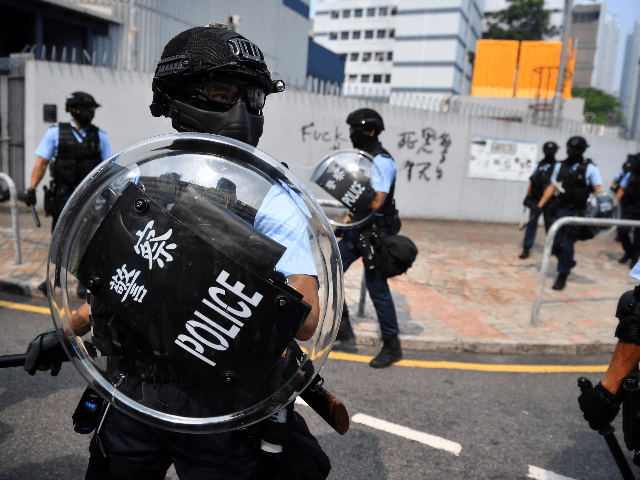Washington has suspended regulations allowing Hong Kong to import sensitive U.S. technology, citing security risks, the South China Morning Post (SCMP) reported on Tuesday.
U.S. Secretary of Commerce Wilbur Ross said on Monday that China’s new Hong Kong “national security” law, officially passed on Tuesday, would undermine the city’s traditional semi-autonomous status and put sensitive technology imports from the U.S. – including high-powered computers, metal alloys, and lasers – in danger of being exploited by China for military purposes:
With the Chinese Communist Party’s [CCP] imposition of new security measures on Hong Kong, the risk that sensitive U.S. technology will be diverted to the People’s Liberation Army or Ministry of State Security has increased, all while undermining the territory’s autonomy. Those are risks the U.S. refuses to accept and have resulted in the revocation of Hong Kong’s special status.
“Commerce Department regulations affording preferential treatment to Hong Kong over China, including the availability of export license exceptions, are suspended,” Ross said in a statement. “Further actions to eliminate differential treatment are also being evaluated. We urge Beijing to immediately reverse course and fulfill the promises it has made to the people of Hong Kong and the world.”
According to the SCMP, the suspension of export license exemptions for Hong Kong “targets companies that import sensitive technologies to Hong Kong, then re-export them to the mainland [China].”
On Tuesday, the CCP’s rubber-stamp legislature, the National People’s Congress, unanimously passed a new national security law for Hong Kong which reportedly aims to prohibit “acts of secession, subversion, terrorism, and collusion.” The law is Beijing’s response to a year-long pro-democracy protest movement in the city that has grown exponentially since its inception last summer.
Activists in the movement protested the CCP’s infringement on Hong Kong’s limited autonomy from Beijing, allowed under a “one country, two systems” agreement from 1997 when Britain handed the city back to China following an end to colonial rule. The new law will effectively eliminate Hong Kong’s limited freedoms under this agreement.
Until now, Hong Kong enjoyed special privileges allowing it to import “dual-use technologies,” or tech with both military and commercial applications. This included defense equipment from the U.S. otherwise prohibited from being sold to China. On Tuesday, U.S. Secretary of State Mike Pompeo announced that Hong Kong will no longer be allowed to import such equipment.
“We can no longer distinguish between the export of controlled items to Hong Kong or to mainland China. We cannot risk these items falling into the hands of the People’s Liberation Army, whose primary purpose is to uphold the dictatorship of the CCP by any means necessary,” he said. “Our actions target the regime, not the Chinese people. But given Beijing now treats Hong Kong as ‘one country, one system,’ so must we.”
The rescinding of Hong Kong’s special import privileges drew a quick response from Beijing on Tuesday.
“In response to the mistaken U.S. action, China will take necessary countermeasures to firmly defend our own national interests,” Chinese Foreign Ministry spokesman Zhao Lijian said. “Intimidating China will never work,” he added.

COMMENTS
Please let us know if you're having issues with commenting.